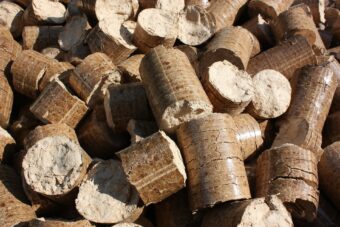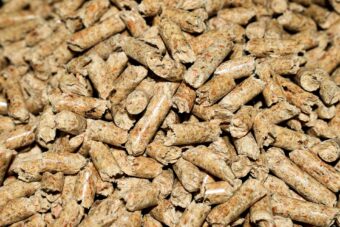Clear rules have recently been established in the domestic wood biomass market, bringing more order, safety, and transparency. The quality of firewood, wood pellets, and wood briquettes is, for the first time, covered by unified rules that standardize the key characteristics of these fuels.
The Regulation on technical and other requirements for solid fuels from wood biomass placed on the market of the Republic of Serbia has been published in The Republic of Serbia’s Official Gazette, which precisely defines physical-chemical parameters, sampling methods, and mandatory laboratory control.
When it comes to pellets and briquettes, an additional quality control measure has been introduced in the shape of reports issued by designated bodies and a mandatory declaration of conformity provided by producers and importers.
We discussed the implementation and potential effects of the new regulation with two interviewees representing complementary perspectives: Igor Milekić, a representative of the pellet industry and Commercial Director of Sparrow d.o.o., and Professor Branko Glavonjić, PhD, full professor at the Faculty of Forestry, University of Belgrade, and one of the main authors of this regulation.
The importance of the regulation from a producer’s perspective
According to Milekić, the idea of drafting the regulation originated back in 2017, when major producers, in cooperation with Professor Branko Glavonjić, raised concerns over drastic inconsistencies in the quality of domestic pellets. The initiative was revived last year, partly due to the dramatic drop in production and sales after 2023, with strong logistical support provided by the Serbian Chamber of Commerce.

Milekić adds that similar regulations already exist within the EU, under the auspices of international organizations such as ENplus, which brings together, registers, certifies, and monitors pellet producers and traders worldwide. Twelve out of approximately 90 domestic pellet producers in Serbia are currently affiliated with this organization.
“This regulation, with its technical requirements, is harmonized with the standards set by ENplus, and it also establishes a market quality control procedure that is significantly stricter, taking into account the presence of unfair competition and critically poor-quality structures in the domestic market,” Milekić explains.
Under the new rules, every pellet producer or importer must now prove compliance of their finished product with twenty-one clearly defined parameters twice a year. Accredited domestic laboratories, upon request, visit factories, take samples, and complete analyses within a few days. If the results meet the prescribed ranges, a quality declaration is issued and attached to each individual bag, valid for six months until the next inspection. The cost of a single analysis is estimated to be several hundred euros, not a significant burden in relation to overall production costs.
IN FOCUS:
- Nuclear energy – Risk or pillar of Energy stability?
- YugoHrana – Sharing Empathy and Surplus from the Plate
- A Global Standard for the Environmental Responsibility of the Cocoa Industry
Key innovations from the perspective of Professor Branko Glavonjić
As Professor Glavonjić explains, the Regulation was introduced with several main objectives – primarily to establish a unified, mandatory quality control system for wood fuels on the Serbian market. This simultaneously protects end consumers from poor-quality pellets or briquettes and removes unfair advantages from companies that have so far avoided laboratory testing, thereby ensuring equal business conditions for all producers and importers. Accordingly, the most significant innovation regarding firewood is the requirement for sellers to issue a declaration of conformity at the point of sale, ensuring that the firewood’s parameters comply with the requirements outlined in the Regulation. In this way, sellers are obliged to deliver the quantity and quality of firewood that the customers have paid for.
Regarding wood pellets, the main innovation is that only pellets of A1 and A2 quality classes are now permitted on the market – class B is no longer allowed. Therefore, only the highest-quality wood pellets will be available on the Serbian market in the future.
Another important change concerns the obligation for producers to carry out semi-annual quality control of their pellets, covering 21 parameters divided into three groups:
- Physical characteristics of wood pellets (dimensions, bulk density, mechanical durability, fine particle content, presence of additives)
• Chemical characteristics of wood pellets (ash content, ash melting behavior, nitrogen, sulfur and chlorine content, presence of heavy metals)
• Energy characteristics of wood pellets (moisture content, net calorific value)
To qualify for A1 class quality, every parameter must meet the prescribed values for that class. If even one parameter fails to comply, the pellet is classified as A2 quality.
“Based on the completed inspection and the report issued by a designated domestic laboratory, producers must place a declaration of conformity on each individual package (every plastic bag) of wood pellets. The Regulation stipulates the procedure domestic laboratories must follow in the quality control process of wood pellets, as well as the contents of the reports they issue to producers. The most important change in this procedure is that sample collection for quality testing must be carried out directly at the production site, not based on samples provided by the producer, as was previously the case with some manufacturers,” explains Professor Glavonjić.

When it comes to imported pellets, the Regulation sets out three options. The first is that the foreign producer hires an accredited domestic laboratory to collect samples and issue a quality control report. Based on this report, the producer issues a declaration of conformity, allowing the pellet to enter the Serbian market. The second option is that if the producer does not do so, the importer must, after customs clearance, engage a domestic laboratory to inspect each batch of pellets; based on this report, the importer applies the conformity declaration to each package. The third option allows for the recognition of reports from foreign laboratories, provided all requirements of the Serbian Regulation are met and there is a mutual recognition agreement in place with the domestic laboratory. The list of accredited laboratories is published on the website of the Ministry of Mining and Energy.
Positive effects of the regulation
The implementation of the new Regulation, which begins on 19 July, is expected to have positive effects for consumers and other market participants for several reasons. The introduction of a unified quality control system for wood pellets and briquettes will apply equally to all market participants.
“The obligation to meet standards and undergo quality control should eliminate the presence of poor-quality wood pellets and briquettes, which will increase consumer confidence in these wood fuels. Buyers will have clearer information about the quality of the fuel they are purchasing, which means fewer issues related to combustion, ash, and equipment damage,” says Professor Glavonjić.
In conclusion, the new Regulation on technical and other requirements for solid fuels from woody biomass represents an important step toward regulating the domestic market and raising the quality of pellets and briquettes in Serbia. It is expected that the Regulation will support the sector’s recovery, strengthen the competitiveness of domestic producers, and increase confidence in wood bioenergy as a sustainable heating solution.
Prepared by Milica Vučković
The story was published in Energy portal Magazine PURE ENERGY

